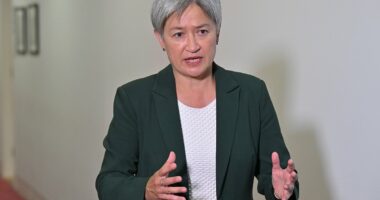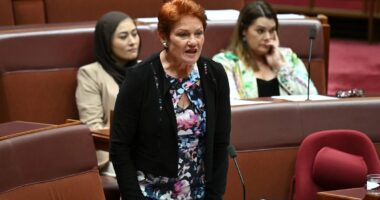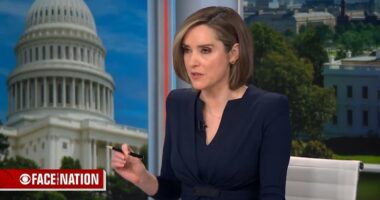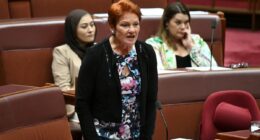Share this @internewscast.com
Rishi Sunak’s efforts to address the soaring cost of living were given a crushing verdict in the poorest parts of Leicester.
For social workers and charity volunteers in the Highfields neighbourhood, where many of the East Midland city’s textile workers live, the UK chancellor has underestimated the scale of the cost of living crisis with measures that will do little for people already being squeezed by poverty.
“The government needed to do a lot more,” said Fatimah Li, a community engagement worker in Highfields.
UK inflation rose to a 30-year high in February and Li said rents on typical three bedroom houses with no outside space in the area had gone up by £300 in the past year to £1,000 a month. Average fuel bills were now around £300 a month — and are set to double when the government’s price cap is raised next month.
Leicester was hit hard during the pandemic and endured the longest continuous lockdown in England during 2020 as the virus spread through multigenerational Asian households and crowded garment factories with some of the highest infection rates at the time. The cost of living crisis has loomed just as people were beginning to feel more hopeful.
Eric Waweru, who has run the Centre Project food bank in the city for the past 18 years, said he had seen a flood of new faces needing help in recent weeks and that many of them were working people.
The centre offers advice on trimming household budgets to make savings to help families make ends meet as well as providing food.
“We are trying to support people not to rely on the food bank but you realise they are really stretched and they just can’t cut back any more,” he said, adding that the chancellor could have helped more with some measures to stabilise rising prices, particularly for energy.
The chancellor’s move to raise the earnings threshold for national insurance by £3,000 to £12,750 was welcomed by Priya Thamotheram, director of Highfields community centre, which provides an array of advisory and other social services. “If he has lifted up the point at which people are liable to national Insurance contributions that is a positive step in the same way lifting income tax thresholds is beneficial for those at the bottom of the earnings structure,” he said.
But he asked “is that going to make a real difference to people’s lives when food prices are jumping, clothing prices are going up, energy prices are jumping and jumping again with further increases projected in October?”
He argued that targeted support, like food and energy vouchers, would have had more impact than the 5p cut to fuel duty that Sunak announced.
The extent to which inflation is already forcing people into dire straits, is evident in Highfields.
Li, the community worker, said the chancellor’s announcement of an additional £500mn for the household support fund, designed to mitigate last year’s cut to the £20 pandemic uplift to the universal credit benefit, would be spread too thinly. It would have been better to simply restore the uplift, she said.
She expressed concern that the cost of living crisis could drive up crime and force people into “side hustles” to keep food on the table and a roof over their children’s heads. “People are not agitating yet but it is going to come to a head,” she said.
Tarek Islam, a community worker who is focused on conditions in the textile industry, said living standards in the area were already under enormous strain, with families crammed into single rooms or forced to rent out rooms for extra income.
“All of these measures are just bandages,” Islam said of Sunak’s pledges to mitigate high inflation. “Prior to the cost of living crisis, people were already struggling. If people are living from one pay cheque to the next wondering how they will get their next meal, how is it possible for a community to thrive?”
At Leicester’s Labour-run city council, officials welcomed the chancellor’s pledge of additional money for household support, which will be directed to the most vulnerable by the local authority. But they called on the government to devise a longer-term solution to the way low income households are supported.
Sarah Russell, the deputy mayor, said that overall, Sunak’s measures did not match up to the severity of the situation facing many families in her area. “It’s fiddling around the edges. It may stop a small number getting into crisis. But it won’t help those who have fallen over the edge.”
Source: This post first appeared on Duk News

















